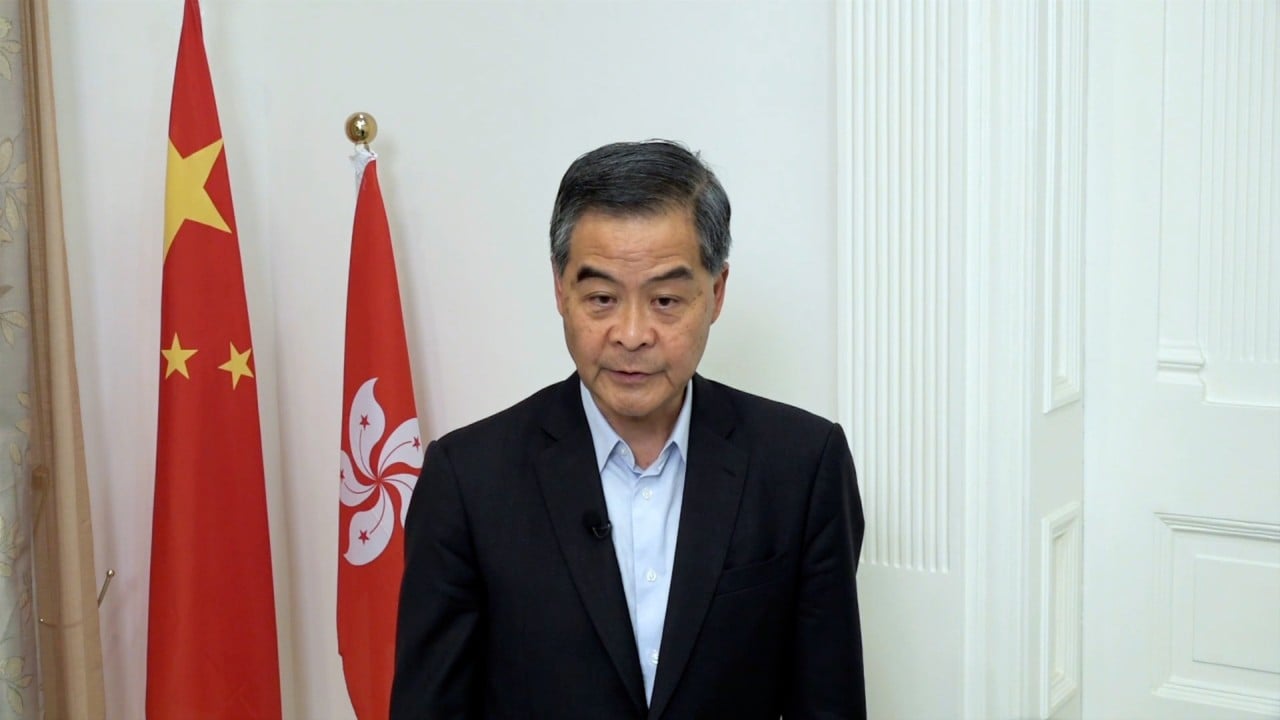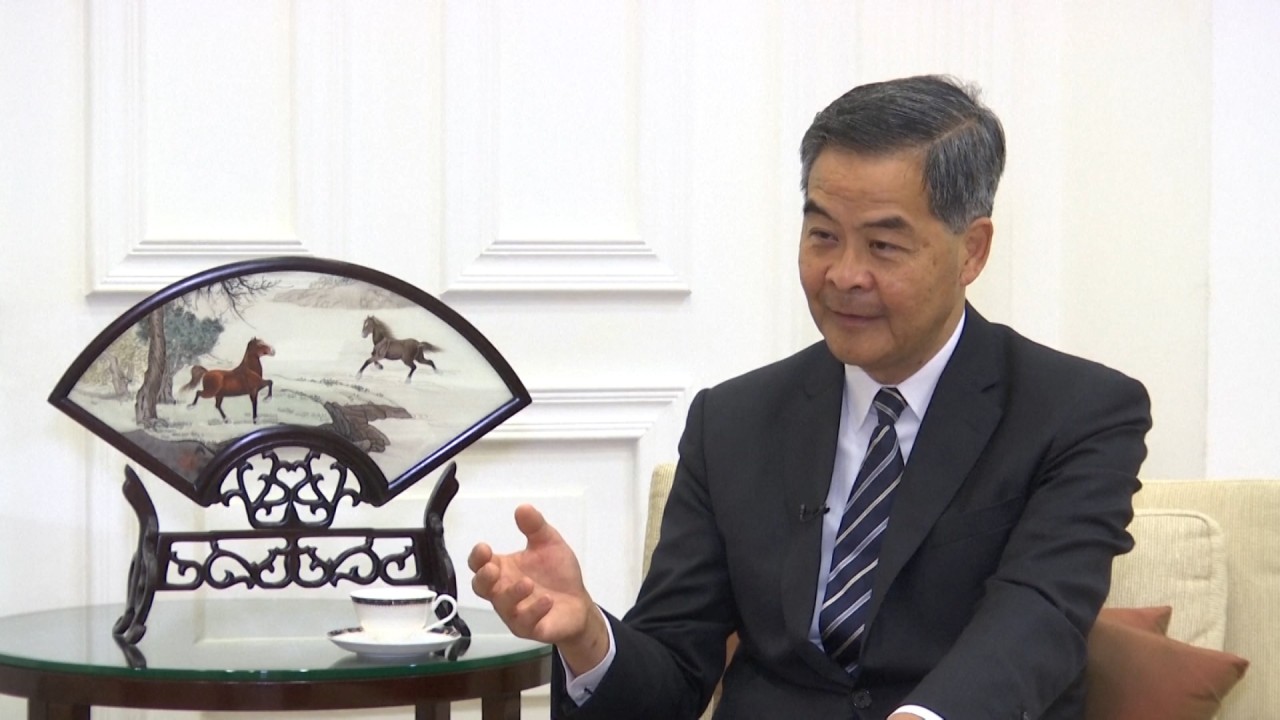
Is former Hong Kong leader CY Leung making a comeback bid? Even if not, he still has the government on the back foot
- City’s former leader has become increasingly vocal about policy, suggesting he might be preparing to launch a bid to replace Carrie Lam in top job
- Leung attempting to paint himself as strong, progressive leader, experts suggest
They said regardless of whether Leung launches his own bid, or supports someone else, his proactive commentary on Lam’s policies would inevitably force the current administration to up its game, especially in areas such as safeguarding national security and solving the city’s land and housing shortage.
“The current government must be pressured to out-compete Leung,” said Lau Siu-kai, vice-chairman of the semi-official Beijing think tank the Chinese Association of Hong Kong and Macau Studies.
“If Leung wants to be the next leader, there’s also no question that he will want to establish himself as more progressive, courageous and intelligent [on policy issues] than the current chief executive.”

03:13
Leung Chun-ying on his proposal to build housing on country park land
Since Lam took office in July 2017, Leung has voiced his views on a number of government policies and used his Facebook page to criticise the opposition.
Lam had avoided commenting on Leung’s remarks, but in January she distanced herself from a suggestion by Leung that the city’s next chief executive could be selected without an electoral process.
Carrie Lam ‘most liberal-minded’ leader Hong Kong has ever had: top adviser
Last Thursday, Leung went a step further by renewing his controversial proposal for the construction of public and subsidised housing on the periphery of country parks, noting that the current government, led by Lam, had terminated his plan.
Lau said the country park plan showed that Leung and his supporters had started to target specific policies that Lam did not implement.
Asked if Leung was too unpopular to govern Hong Kong again, Lau said he believed Beijing was more concerned about policy execution.
“The central government wants seamless cooperation with the chief executive,” he said. “Beijing understands that the chief executive cannot have high popularity overnight if it wants to continue with a tough and strong policy direction on Hong Kong.”

In 2012 and 2017, Leung and Lam were elected by the 1,200-member Election Committee. The committee consisted of four 300-member sectors, representing the city’s business, professional, social and political elites.
Under a Beijing-decreed political overhaul to be implemented this year, the committee will become a 1,500-member body, with the addition of a 300-member sector dominated by Hong Kong delegates to the mainland’s legislature and other prominent bodies.
Lau said while Leung struggled to secure support from the business and professional sectors in 2012, it would not be a problem for him to get enough nominations from each of the five sectors, should he consider a bid next year.
“The business sector used to be dominated by the big conglomerates, now their influence will be diluted,” he said.
Only Beijing holds power over Hong Kong chief executive election: CY Leung
A pro-Beijing lawmaker, who spoke on condition of anonymity, said Leung was being more active than Lam and former leaders such as Tung Chee-hwa in commenting on public policy.
“Last year, we could say he was just expressing his care about the city,” they said. “With his approach now, everyone knows what he’s doing.”
Some pundits suggested Leung could be paving the way for someone else, such as Financial Secretary Paul Chan Mo-po, to launch a bid, but the lawmaker dismissed that.
“If Leung was doing it for someone else, he or his supporters would make hints,” they said. “I’ve yet to see that, so I think Leung is doing it for himself.”

01:55
'Patriots governing Hong Kong' supported by ex-city chief executive CY Leung
Asked if Leung might struggle to secure support from the business sector, the lawmaker said Beijing’s endorsement and policy propriety was what counted.
“If Beijing’s priority is to fix Hong Kong’s civil service and reform the education system, it may want someone who’s most familiar with how the bureaucracy works to be the leader,” they said, in a reference to Lam.
“But if Beijing wants to narrow Hong Kong’s wealth gap and resolve the land and housing problems, it will need a strong leader who can execute policies without worrying about clashing with the developers and those with vested interests.”
Are Hong Kong’s teachers radicalising youth? Claim draws war of words
Chan Wai-keung, a political scientist at Polytechnic University, said he believed Beijing would like a tougher person to lead Hong Kong and execute the central government’s policies.
“Under the prevailing political situation, maybe Beijing would think that Leung is a better choice than Lam,” he said.
Hui Ching, research director of policy think tank the Hong Kong Zhi Ming Institute, also believed the central government would like to replace the current chief executive, but Chinese University political scientist Ivan Choy said it was too early to say.
“Perhaps he [Leung] is just trying to expand the influence of his camp in the future chief executive election,” Choy said.


